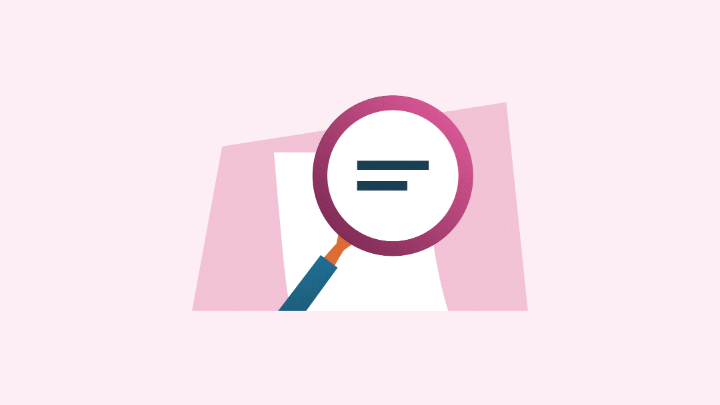What Is the Job of a Translator (and How To Become One)?
Updated July 21, 2022
What is the job of a translator?
A translator gets hired to take written materials in one language and reproduce them in another. Their goal is to create a translation of the text that is accurate and reads the same way as the original text. This involves maintaining a document's style, structure and tone and interpreting cultural references, expressions and slang. Translators often read a work in a language they speak fluently and convert it into their native language. Translator job requirements might include:- Reading materials
- Writing and proofreading
- Translating text from one language to another
- Maintaining a text's meaning, accuracy and tone
- Making multiple rounds of revisions to translated text
- Editing computer-translated text
- Researching technical or industry terminology
- Checking a translation's quality and accuracy
- Creating subtitles for presentations or videos
- Using online translation and computer-assisted translation tools
- Consulting with industry experts
- Meeting with clients to determine their needs and make sure the finished work meets those needs
- Giving clients estimates of a translation project cost and timeline
- Staying up to date on translation tools and techniques
Requirements for translators
Most individuals who pursue translator careers speak at least two languages fluently. Clients and employers typically look for translators with a bachelor's degree, experience converting texts to other languages and the communication and interpersonal skills to succeed in this field. Translation job requirements include:Education
A translator's education often starts in high school, where they take and excel in foreign language classes. Most translators earn their bachelor's degree in a subject such as translation, interpreting, international studies, English or a foreign language. Students who want to specialize in translating certain types of documents might also study medicine, engineering, business or law.While you can find translation work without a degree—particularly if you speak multiple native languages—a bachelor's can significantly improve your chances of getting hired and advancing in your career. Most government and international organizations, for example, require translators to have college degrees.Experience
Experience is one of the most important requirements to become a translator, because you need to practice reading, writing and speaking a language to perfect it. To prove to employers that you can translate effectively, gain experience by:- Living in a foreign country
- Interacting and communicating with people from other cultures
- Volunteering at hospitals, community organizations and sporting events that attract international athletes
- Getting a paid or unpaid internship with a translation company
- Completing training programs for positions such as medical or legal translators
Credentials
Translators can pursue professional certifications to show their skills and expertise to potential employers. The ATA offers certification in 29 language combinations. Certification involves passing a three-hour exam that requires you to translate college-reading-level pieces of content while following instructions for audience, purpose and style. Translators who pass this exam demonstrate their skill as well as their ability to follow client instructions. To stay certified after passing the exam, you need to earn 20 continuing education points every three years.You can also prove your skills by passing tests to translate content for agencies such as the U.S. Department of State or the National Virtual Translation Center.Skills
The main skills translators need to be successful and should have on their resume include:- Attention to detail: Translators should pay close attention to the words, phrases and expressions they translate to ensure their work is accurate.
- Business skills: Freelance or self-employed translators should have the business skills to connect with clients, market their services and manage their billing and finances.
- Interpersonal skills: Translators work with a variety of clients and cultures and should interact and communicate with people effectively. The need to build strong and positive relationships with clients if they want to receive repeat business.
- Technology: Many modern translators use computer-assisted translation tools to quickly convert text from one language to another. They might also use translation software and computer programs to submit translated text to clients.
- Time management: Most translators work on deadlines and should be able to do their jobs efficiently.
- Writing and editing: Translators should have strong writing skills and demonstrate correct grammar, punctuation and spelling in multiple languages.
Types of translators
Translators can specialize in a certain type of work or industry, depending on their background. Types of translators include:- Financial: Banks, investment firms and financial institutions might hire translators to convert financial reports, income statements, business plans and other confidential documents into other languages.
- Legal: These translators work in courts or legal offices to reproduce hearing, arraignment, trial and other legal documents in different languages. They should understand complex legal terminology.
- Literary: Literary professionals translate books, poems, articles and short stories into different languages. They might work closely with authors and editors to maintain the content's style and tone.
- Medical: These professionals might work in healthcare facilities to help patients understand medical documents. They might translate materials such as medical records, clinic website information, research, informational pamphlets, pharmaceutical brochures and patient documents from one language to another. Because medical translators often read confidential patient information, they should have high ethical standards.
- Scientific: These translators work with complex content such as scientific journal entries, research summaries and scientific texts. They usually have a background in a field such as chemistry or biology.
Get recommendations for your resume in minutes
Frequently asked questions
Individuals interested in translation careers often ask the following questions:How much money do translators earn?
According to Indeed Salaries, translators earn an average salary of $47,069 per year. Translators that work in specialized areas, are ATA-certified or have many years of experience might earn higher salaries.What is a translator's work environment?
Translators employed by companies or agencies usually work full-time in an office. Freelance translators have more flexible hours, are remote and might work on several projects at once. Employers of translators include:- Translation companies
- Government agencies
- Civil organizations such as police forces
- Healthcare facilities
- Research labs or organizations
- Courts and legal firms with diverse clientele
What career advancement opportunities do translators have?
As translators become more experienced, they might:- Become certified
- Receive more responsibility from employers
- Accept more difficult assignments from clients
- Start their own translation business
Interpreters, translators, captionists & transcribers
Explore more articles
- 21 Positions for Restaurant Workers
- Career Coach Tips: 16 of the Best Summer Jobs for Teachers
- What Is Direct Hiring?
- 22 Entertainment Industry Jobs (With Salaries and Duties)
- Pros and Cons of Working in a Family Business
- 17 Jobs for Thrill Seekers
- How To Write a Temporary To Permanent Employment Request Letter
- 26 Jobs That Pay Over $120K a Year
- Certificate vs. Degree: What's the Difference?
- What Certifications Are Needed To Administer Botox Injections?
- 9 Pros and Cons of Being a Pharmacy Tech
- What Is Relevant Social Work Experience? (With 10 Examples)


